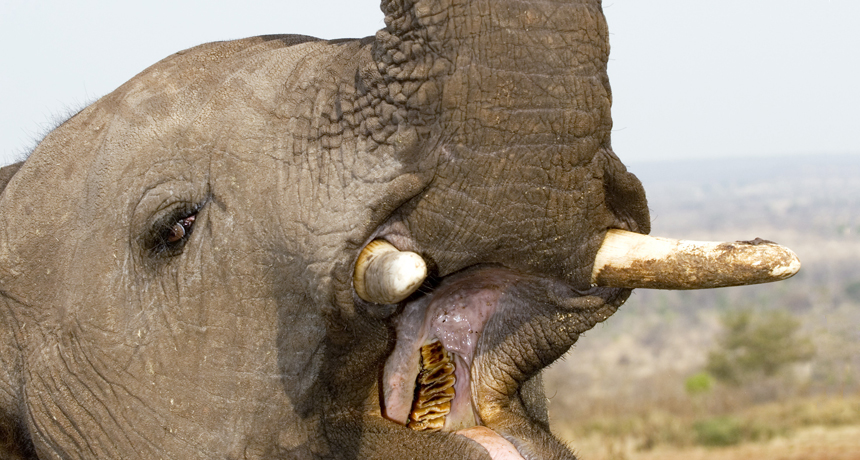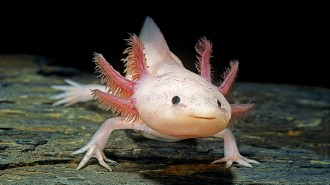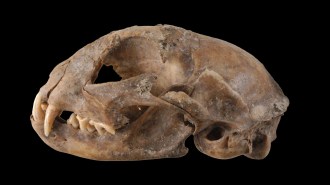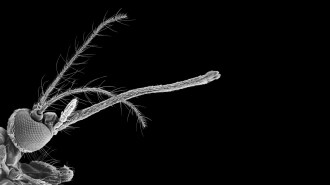Elephant diets changed millions of years before their teeth
The animals fed on grasses long before their molars could grind the tough plants

CHOMPER CHANGE African elephants and their relatives began grazing on the savanna millions of years before they evolved teeth like those seen inside this elephant’s mouth, which are capable of grinding tough, gritty grasses.
Tony Camacho/Science Source






